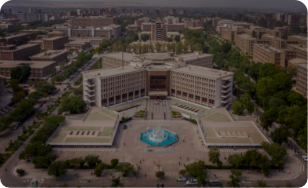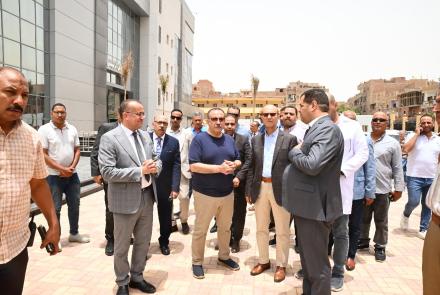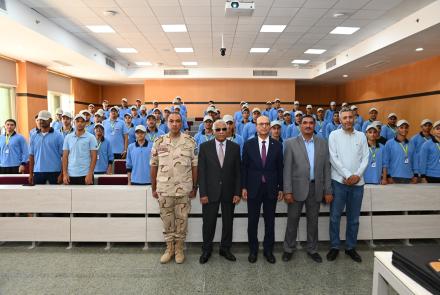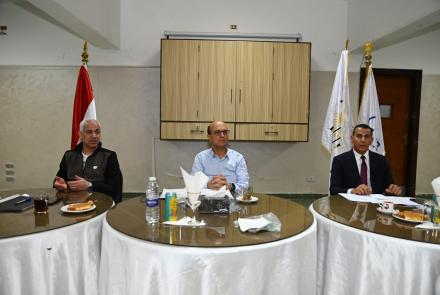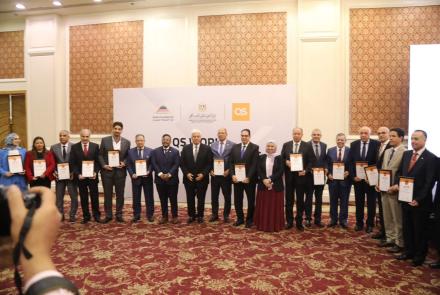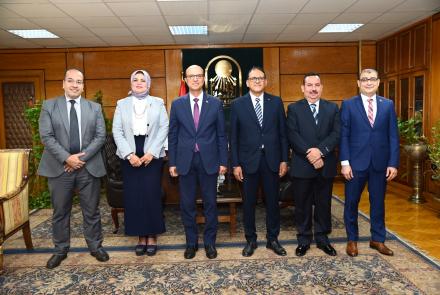A delegation from the center of clean energy and the Office of the United
Nations Industrial Development Organization in Cairo has paid a visit to Assiut
University to follow up the project "Site Measurements and Assessment of the
Performance of the Solar-Operated Units for Absorption Conditioning Designed
for Residential Homes Compared to Conventional Units;” a project implemented
by Assiut University in collaboration with the German Government and funded by
the Foundation of Science and technological development.
Dr. Ahmed Hamza Hoseini, Professor of Mechanical Engineering, Faculty of
Engineering, Assiut University, Director of the project indicated that the
project is a practical model for the use of solar energy in its thermal and
cooling conditions to operate conditioning units in buildings. He added that
several stages of the project related to the university cadres including design
preparations, purchasing, implementation, and continued operation of the system,
have been completed and at work as of 2009 up till the present time. These
stages have been designed to operate in current capacity to be used at
households in modern communal areas nationwide during hot and cold seasons.
Prof. Huseini maintained that the success of the experiment led the Clean
Energy Center and UNIDO office in Cairo to send a delegation of experts
including Dr Ali Abu-Senna, director of the Center for cleanest technology
production, Dr. Shaahinaz Fouad, member of UNIDO Office in Cairo, Dr. Arnulf
Knorr, Expert of Energy Usage Efficiency, Arab German Chamber, Engineer Mina
Nabil, First Specialist in energy-saving, and Engineer Ahmed Aatef, Specialist
energy-saving to check the system and work upon building similar designs for
both tourist and industrial sectors, in addition to looking for a means to
generalize this system all over the country as long as this system reflects a
good impact on environment preservation from gas emissions causing thermal
retention with 90% lower than in traditional cooling systems.
Delegation from the Clean (Renewable) Energy Center and the United Nations Industrial Development Organization in Cairo Visits Assiut University
 Do you have any questions?
Do you have any questions? 
